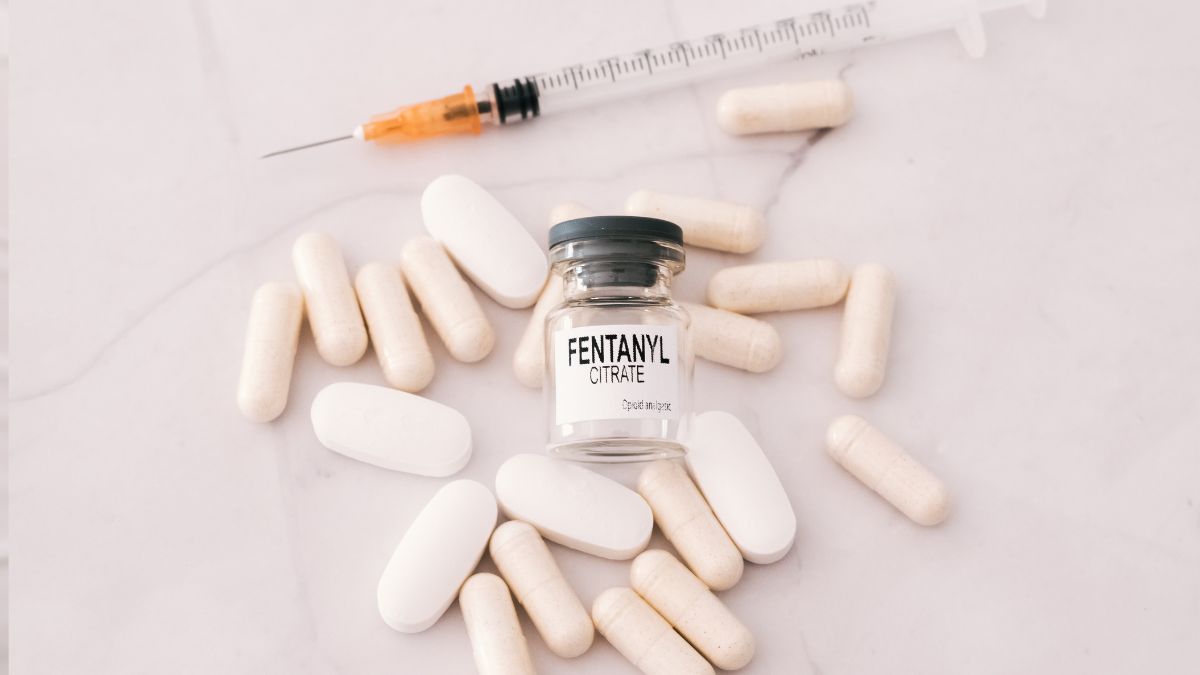
Fentanyl is a powerful synthetic opioid that is widely used for pain management but also carries a high risk of addiction and overdose. Whether prescribed for pain relief or encountered in illicit forms, understanding how long fentanyl stays in your system is crucial for both health and safety.
Fentanyl is known for its potency, being 50 to 100 times stronger than morphine. Doctors often prescribe fentanyl to treat severe pain, particularly in cancer patients or after major surgeries. However, its strength and potential for misuse have made fentanyl a significant public health concern, especially as people frequently mix it with other illicit drugs, leading to overdose deaths.
If you or a loved one has used fentanyl, understanding how long it stays in the system is important for several reasons, including medical treatment, drug testing, and managing addiction recovery. The duration fentanyl stays in your system can vary based on several factors, including the dosage, frequency of use, and individual body chemistry. Let’s dive deeper into how this drug is processed by the body and the timeline for its presence in different drug tests.
If you or a loved one is struggling with drug addiction, take the first step towards recovery! Reach out today by heading to our admissions page or calling us now.
How Fentanyl Is Metabolized
The liver primarily metabolizes fentanyl and breaks it down into inactive compounds, which the body then eliminates through urine. Due to its potency, fentanyl can produce both therapeutic and dangerous effects quickly. The body typically processes fentanyl more rapidly than other opioids, but it can still leave detectable traces depending on the type of test used.
Factors Influencing How Long Fentanyl Stays in Your System
Several factors can influence how long fentanyl remains detectable in your system, including:
- Dosage: Higher doses of fentanyl may take longer for the body to eliminate than smaller doses.
- Frequency of Use: Chronic or frequent fentanyl users may have the drug in their system for longer periods due to accumulation.
- Method of Administration: People can administer fentanyl in various forms, including patches, lozenges, and injections, each of which influences how long it remains in the body.
- Metabolism: Individuals with faster metabolisms tend to process drugs more quickly than those with slower metabolisms.
- Age, Weight, and Health: Age, weight, and liver function all influence how efficiently the body metabolizes fentanyl.
Understanding these factors helps give a clearer picture of the timeline for fentanyl’s presence in the body, especially for those who are undergoing drug testing or working towards recovery from addiction.

Detection Windows for Fentanyl
Fentanyl can be detected in the body through various drug tests, each with its own detection window. Here’s how long fentanyl typically remains detectable in different testing methods:
1. Urine Test
Urine tests are the most common method for detecting drugs like fentanyl. Fentanyl can be detected in urine within 24 to 72 hours after the last dose. However, in chronic users, fentanyl might be detectable for longer periods.
2. Blood Test
Blood tests have a shorter detection window for fentanyl compared to urine tests. Fentanyl is usually detectable in the blood for up to 12 hours after the last dose. Due to its short detection period, blood tests are typically used in situations requiring immediate results, such as during a medical emergency.
3. Saliva Test
Fentanyl can also be detected in saliva, though this method is less commonly used. The detection window for fentanyl in saliva is approximately 1 to 4 days after the last use.
4. Hair Follicle Test
Hair follicle tests have the longest detection window for fentanyl. Fentanyl can be detected in hair for up to 90 days or more, making this method useful for tracking long-term use or patterns of drug abuse.
Fentanyl Half-Life
The half-life of fentanyl, which is the time it takes for half of the drug to be eliminated from the body, varies based on the form in which it is taken. For example, when taken in the form of a transdermal patch, the half-life can be anywhere from 13 to 22 hours. This longer half-life means that fentanyl stays in the system longer when administered via a patch compared to other forms like injections, which have a shorter half-life of 3 to 12 hours.
Why Knowing Fentanyl’s Timeline is Important
Understanding how long fentanyl stays in the system is essential for several reasons:
Preventing Overdose: Fentanyl is highly potent, and even a small miscalculation in dosage can result in overdose. Knowing how long it remains in the system helps healthcare providers manage safe use, particularly when transitioning patients off the drug.
Medical and Legal Drug Testing: Individuals undergoing medical treatments, court-ordered testing, or workplace drug screening may need to know how long fentanyl will be detectable in their system.
Recovery and Treatment: For individuals battling fentanyl addiction, understanding the drug’s impact on the body is a key part of recovery. It helps frame the timeline for withdrawal symptoms and sets realistic expectations for drug detox and rehabilitation.
Fentanyl Addiction and Withdrawal
Fentanyl addiction can develop rapidly due to its potency and the euphoric effects it produces. Withdrawal from fentanyl can be challenging, especially for individuals who have been using the drug for a long time or at high doses. Symptoms of fentanyl withdrawal may begin within 12 to 30 hours after the last dose and can include:
- Intense cravings
- Muscle and bone pain
- Insomnia
- Diarrhea and vomiting
- Cold flashes with goosebumps
- Uncontrollable leg movements
The severity of withdrawal symptoms often depends on the level of dependence and how long the person has been using fentanyl. Medical detox and professional addiction treatment are critical for safely managing these withdrawal symptoms and helping individuals begin their journey to recovery.

Seeking Help for Fentanyl Addiction at Lake Ave Recovery
Fentanyl addiction can be life-threatening, but recovery is possible with the right support. At Lake Ave Recovery, located in Massachusetts, we specialize in providing comprehensive care for individuals struggling with fentanyl addiction and other substance use disorders. Our team of experienced professionals is dedicated to helping clients detox safely and build the skills they need to live a healthier, drug-free life.
Our Programs Include:
Medically Supervised Detox
Our detox program ensures that clients undergo withdrawal safely with medical support.
Individualized Treatment Plans
We develop personalized treatment plans that address the unique needs of each client.
Therapy and Counseling
Our evidence-based therapies help clients address the emotional and psychological aspects of addiction.
Aftercare Support
We provide ongoing support to ensure long-term recovery success.
If you or someone you know is struggling with fentanyl addiction, don’t wait to seek help. Lake Ave Recovery is here to guide you through the process of detox, recovery, and beyond. Our compassionate team is committed to helping you reclaim your life from addiction.
Call us today or check out our admissions page to learn more about our programs and how we can support you on your journey to recovery.
